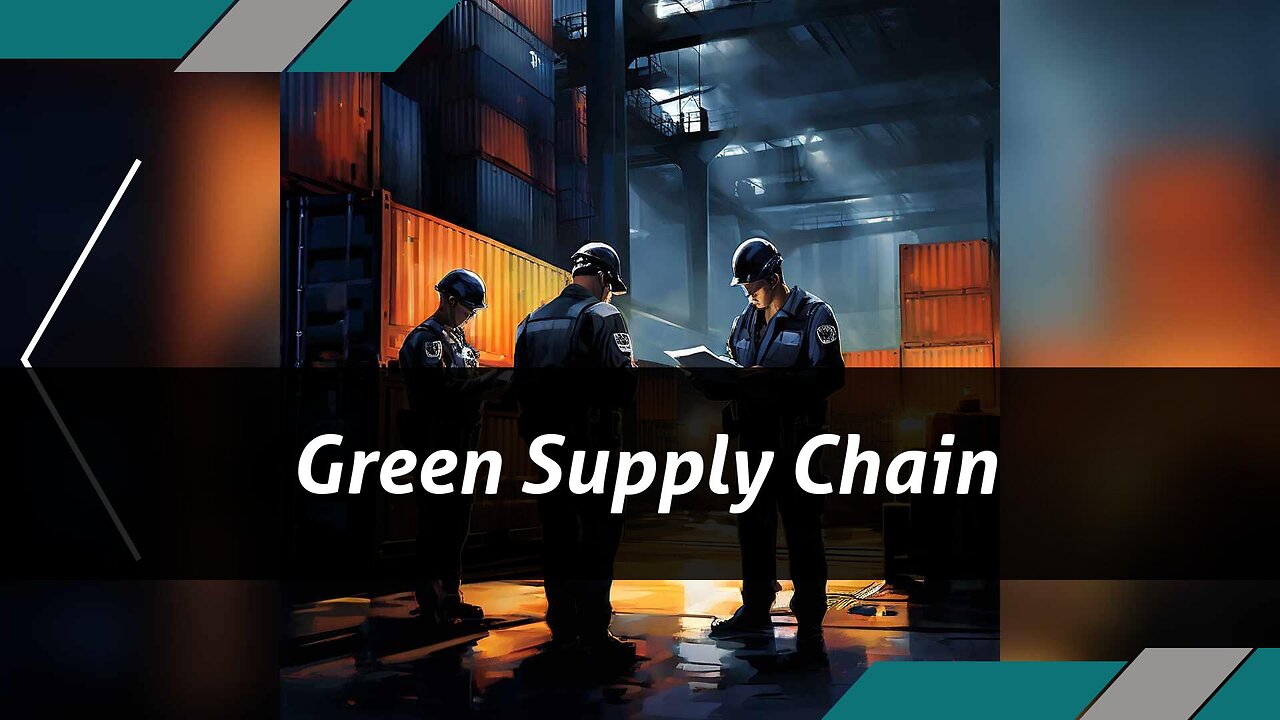Premium Only Content

Driving Sustainability in the Supply Chain: Integrating ISF and Green Practices
ISF Depot // 661-246-8217 // customs@isfdepot.com // www.isfdepot.com
Incorporating sustainability criteria into supply chain practices, particularly in relation to Importer Security Filing (ISF), is crucial in today's business landscape. This video discusses the concept of ISF and its significance, followed by an exploration of why sustainability is important in supply chain practices. The integration of sustainability into the ISF process involves considering the environmental impact of shipping methods and making more eco-friendly choices. Collaboration and transparency are also key, as importers should establish strong partnerships with suppliers and transport providers who share the commitment to sustainable practices. Compliance with environmental regulations and standards is paramount, and importers must stay updated and ensure their partners follow the required sustainability protocols. Continuously evaluating and improving sustainability criteria within the supply chain is also necessary to foster a culture of innovation and responsible business practices. By incorporating sustainability criteria into supply chain practices, importers can contribute to a greener future while strengthening their supply chains.
#usimportbond #isfcustomsbroker #uscustomsclearing #isfentry
Video Disclaimer Here: This tutorial is independent and not affiliated with any US governmental entities.
0:26 Understanding Importer Security Filing (ISF)
ISF is a mandatory filing requirement by U.S. Customs and Border Protection for shipments entering the United States to enhance supply chain security.
0:58 Importance of Sustainable Supply Chain Practices
Businesses are recognizing the importance of sustainability to improve brand image, attract conscientious consumers, and contribute to long-term well-being.
1:28 Integrating Sustainability into ISF
Importers can consider environmental impact in shipping methods, opt for eco-friendly options like low-emission transportation or renewable energy sources.
1:59 Collaboration and Transparency
Establishing partnerships with suppliers and transport providers to ensure commitment to sustainable practices, sharing information, and promoting ethical business practices.
2:29 Compliance and Continuous Improvement
Importers should comply with environmental regulations, ensure suppliers follow sustainability protocols, and continuously evaluate and improve sustainability criteria within the supply chain.
-
 1:33:14
1:33:14
Jamie Kennedy
20 hours agoThe LA Fires...
16.4K5 -
 2:01:45
2:01:45
Quite Frankly
1 day ago"Inauguration Eve: Trump Time Travel Review" 1/17/25
27.3K18 -
 58:42
58:42
SGT Report
4 months agoYour REAL NEWS vs. CIA Mockingbird LIES -- Sam Anthony
155K95 -
 2:59
2:59
LimitlessAmbition
21 hours ago $2.95 earnedPROVE THEM WRONG With This POWERFUL Motivation!
36.4K1 -
 8:31:37
8:31:37
G2G Gaming Channel
10 hours agoGive me my Helmet, Im going in!! #RumbleGaming
65.1K1 -
 4:45:11
4:45:11
MoFio23!
8 hours agoNintendo Switch It UP Saturdays with The Fellas: LIVE - Episode #3
40.6K6 -

SquallRush
7 hours agoMarvel Rivals Collab
31.1K -
 8:36:24
8:36:24
stephengaming94
6 days agofar cry 5 live stream part 3
22.2K2 -
 2:03:28
2:03:28
Barry Cunningham
19 hours agoTRUMP DAILY BRIEFING: 2 DAYS TO GO - ARE YOU READY FOR HISTORY TO BE MADE?
54.6K89 -
 13:41
13:41
Tundra Tactical
10 hours ago $10.72 earnedGOA VP Erich Pratt Tells ATF "COMPLY NOW"
77.2K6